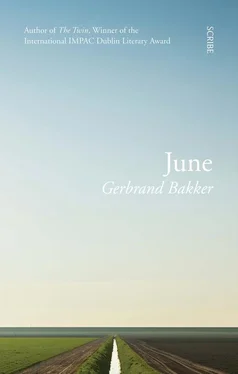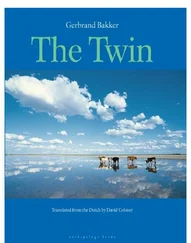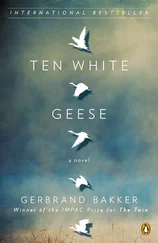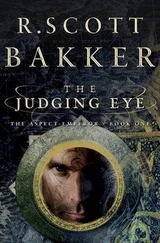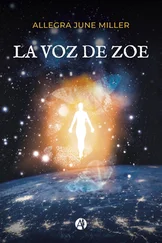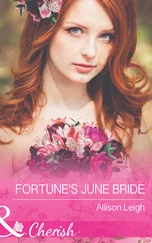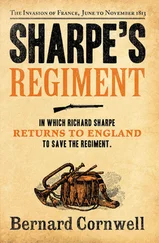Zeeger Kaan has stopped listening. He looks at the sky. He can see a lot more of it now: looking west towards the village, at least half of the horizon is open again. A strange sky. It’s like a sea mist hanging over the land, which is something you almost never see in June. You get that kind of thing in August and usually it cools off immediately, unlike now. There doesn’t look to be any rain on the way, no rumbling in the distance either. He thinks of Anna. Soon everyone will leave again. He doesn’t want to be alone in the house, to have to go to bed alone. Just before dumping the chips in the fryer he’d hung the parade sword back up on the two hooks under the bookshelf. An ugly thing, really, but what can you do: an heirloom from some uncle or other who’d stood guard in front of an important building. He can’t imagine why Anna took it up with her.
‘Thirteen,’ says Klaas. ‘I’ve got two.’
‘F-our,’ says Johan.
He’s caught one himself. ‘You, Jan?’
‘Just the one. But a very big one.’
‘Then you’ve got five, Diek,’ says Klaas.
‘Does that make me the winner?’
‘If we stop now it does.’
‘N-o!’ cries Johan.
‘Why isn’t Mum fishing?’ Dieke asks.
‘Your mother thinks fish are slimy,’ Klaas says.
Zeeger looks at the farmhouse. Klaas’s wife is standing at the kitchen window with a tea towel in one hand. Isn’t that the second time he’s seen that today? A little further along, the old Barbary duck comes out through the side doors of the barn. Halfway across the yard it takes flight. That surprises Zeeger, who thought it was well past flying. The duck lands awkwardly in the ditch near Rekel, who finally looks up and barks.
‘Hey!’ Johan yells. ‘You’re s-caring the fish!’
Jan raises his rod, fiddles the worm off the hook and winds the line around a spool.
‘Had enough?’ Zeeger asks.
‘I want to go home.’
‘Home?’ Klaas asks. ‘But you’ve —’
‘Shut your trap,’ says Jan.
Rekel barks again. The Barbary duck swims in circles and hisses. It doesn’t mean anything. Zeeger once saw them in the yard with Rekel lying stretched out while the duck put on a courtship display for him. Rekel probably thinks the duck’s a dog and the duck probably thinks Rekel is a duck. By the sound of it, Dirk has banged his head against the bars of the bullpen again.
‘I want to go home,’ his second son says again. He looks at Klaas and rubs his forehead, back and forth over the mosquito bite Zeeger saw this morning. He’s still only wearing shorts and a T-shirt.
‘N-ow it’s no fun any more,’ Johan says.
‘Then I’m the winner!’ Dieke cries.
Jan walks over to the barn, goes inside and comes back out a little later with the green bucket. He stayed inside longer than necessary. He rummages through the bucket on the way back and pulls out something. Is that an envelope?
‘D’you get a letter?’ Zeeger asks.
‘Y-es,’ says Johan. ‘From the baker.’
‘The baker? Blom?’
‘Yeah,’ says Jan. ‘I’ll put all this away and then get changed.’ He walks over to the side door with Johan behind him.
‘Well done, Dieke,’ says Klaas, who leaves too.
Dieke has already forgotten her victory. She leans on the middle rail of the bridge and stares big-eyed at the gas well.
‘Something interesting down there?’ he asks.
‘I can see the bogeyman,’ she says. ‘He’s breathing.’
She really cannot remember why she was running so late. It doesn’t matter. Jan and Johan had already left for school, and would go to the Polder House from there. Klaas was already gone too. She’d been left behind with Hanne. Zeeger was working. Was that the day Hanne put her little hand in the empty apple-sauce tin with the razor-sharp lid still attached? When she’d had to hunt for iodine and plasters and scissors? When she’d had to comfort her? No, that was earlier. Why was I so late? But if I’d been on time, the Queen wouldn’t have touched Hanne or spoken to me.
It’s getting more and more difficult to think straight. The creaking and groaning, the sliding in the silo, the marching borers and woodworms, and the restless crashing of that superfluous lump of meat make it almost impossible. And the cold. She can’t understand where that’s coming from, she doesn’t have the impression the weather’s suddenly turned. If she’d known, thinks Anna Kaan. If she’d known that the child whose cheek she’d stroked after lunch would be dead that afternoon. But she was already in Anna Paulowna by then, and the next day she was on Texel. Noises make their way in from outside, where they are now fishing. She’s lying on her back with her arms by her sides, the straw has moulded itself completely to her body, not a single snapped stalk is poking her in the back. I want to go to the beach tomorrow, she thinks. Go to the beach again after all this time, and Zeeger’s coming with me, whether he wants to or not. Maybe Rie and Jenneke will be there too. Zeeger in the blue swimming trunks that are so old they’re almost disintegrating. Floating in the sea on my back with my toes sticking up out of the water. Just like I’m lying here now, but flapping my hands. I’ll try to lure Rekel into the water. It’s strange, Rekel doesn’t like salt water. I want to clean the old toilet bowl in the cowshed too, she thinks, and tear off the old calendar pages while I’m at it, so it’s today there too. ‘Rekel, here, boy!’ she hears Zeeger call. But Rekel won’t come. Besides disliking salt water he also hates fishing.
Only the empty biscuit packet is lying next to her now. And the ladder, of course. I can go down now, she thinks. Without a word — or maybe just a ‘See?’ to Johan and a quick dirty look at Jan — then cross the bridge and make some coffee. Slice some gingerbread cake. Coffee and gingerbread cake to round off the fishing. Then everyone can go home. Turn on the telly. Feed Rekel, hoping that Zeeger won’t ask or say too much.
When she tries to sit up, she can’t manage it. The cold has crept up through her arms and legs, numbing her limbs. She no longer feels like steak, cold water or crispy-fresh French beans. ‘N-o!’ she hears Johan shout. No? No, what? Then she doesn’t seem to hear anything at all for a while, until Rekel suddenly starts barking. I was too late, my bike fell down. Back home, I carried a basket full of washing out into the yard from the milking parlour. Clothes and sheets, washed in the Miele. It was quiet on the other side of the ditch: the labourer, his wife and two children were on holiday. I hung up Zeeger’s underpants with the pegs and thought, he buys a new radio and a new camera, he gets a new bulk tank and a new pipeline installed, but new underpants never occur to him. He was hammering away upstairs. Jan and Johan were at the swimming pool. Klaas might have been at home. Hanne was playing in the living room. I called out to her when I went into the kitchen. ‘Ah,’ I heard from the living room, so I went to check on her after all. She was kneeling down at the glass-topped table, scribbling on the back of a piece of wallpaper with two felt tips at once. She’d already forgotten about the Queen, she didn’t even know who the Queen was. Tinus was lying next to her, all four legs stretched out. I almost said, ‘Don’t lean too hard,’ because we’d already replaced the glass four times. A big mistake, that table — how are kids supposed to know how fragile a sheet of glass is? I walked back to the kitchen, got a mixing bowl out of a cupboard, shook a packet of flour into it, poured in some milk, broke a few eggs into the mix and added a couple of pinches of salt. A Saturday dinner. Because it felt like a Saturday.
Читать дальше
